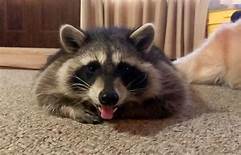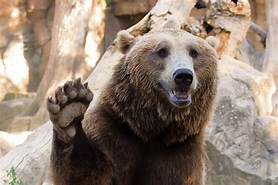Can You Have a Pet Raccoon in Ohio?
Raccoons are fascinating creatures, but are they legal to keep as pets in Ohio? Let's dive into the regulations and considerations surrounding raccoon ownership in the Buckeye State.

Ohio's Wildlife Laws and Raccoon Ownership
1. Wildlife Protection Laws:
Ohio has strict wildlife protection laws that prohibit the possession, capture, or harassment of wild animals, including raccoons. These laws aim to protect native wildlife and preserve their natural habitats.
2. Raccoon as Protected Wildlife:
Raccoons are classified as protected wildlife in Ohio. This means that it is illegal to take, possess, or disturb raccoons without proper authorization from the Ohio Department of Natural Resources (ODNR).
3. Permits and Exceptions:
In certain limited circumstances, permits may be issued by the ODNR for the possession of raccoons. These permits are typically granted for educational, scientific, or wildlife rehabilitation purposes.
Ethical Considerations of Raccoon Ownership
1. Wild Animal vs. Domestic Pet:
Raccoons are wild animals and not domesticated species. They have specific needs and behaviors that may not be suitable for a home environment.
2. Health and Safety Concerns:
Raccoons can carry diseases and parasites that can be transmitted to humans and other animals. They may also exhibit aggressive behavior, especially when feeling threatened.
3. Behavioral Challenges:
Raccoons are curious and intelligent creatures, but they can also be destructive and messy. They may chew on furniture, dig through trash, and create noise disturbances.
Alternatives to Raccoon Ownership
1. Wildlife Appreciation:
Instead of owning a raccoon, consider observing and appreciating them in their natural habitats. You can set up bird feeders and water stations in your yard to attract raccoons and other wildlife.
2. Wildlife Rehabilitation:
If you encounter an injured or orphaned raccoon, you can contact a licensed wildlife rehabilitator. These organizations provide care and rehabilitation for injured animals before releasing them back into the wild.
3. Volunteering and Advocacy:
You can support raccoon conservation by volunteering with wildlife organizations or advocating for policies that protect their habitats and well-being.
Conclusion
While raccoons may seem like charming creatures, owning them as pets is generally prohibited in Ohio due to wildlife protection laws. Ethical concerns and the challenges of keeping a wild animal in a domestic setting further emphasize the importance of respecting raccoons as wild creatures and appreciating them in their natural habitats.
Declaration: All article resources on this website, unless otherwise specified or labeled, are collected from online resources. If the content on this website infringes on the legitimate rights and interests of the original author, you can contact this website to delete it.





